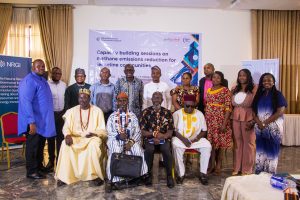Saudi Arabia cites UN job application as evidence against Loujain al-Hathloul

Saudi Arabia has not publicly released the charges against women’s rights defender Loujain al-Hathloul, or several other prominent female activists who are currently on trial in Riyadh on charges related to their human rights work. But in a six-page charge sheet for Hathloul’s case, seen by CNN, a section titled “crimes committed” includes activism against the kingdom’s restrictive male guardianship laws, along with contact with foreign journalists and diplomats. The charges rely on a series of alleged confessions, according to the documents, which state that Hathloul confessed to applying for a job at the UN along with confessing to being in contact with the human rights groups Amnesty International and Human Rights Watch. Hathloul applied to the UN’s Young Professionals Programme in 2017, her family members told CNN. CNN has reached out to the Saudi government on the details in the charge sheet. In the past the kingdom has not responded to repeated requests for information on the charges against the women. CNN has reached out to the UN for comment.The revelation comes as the trial of Hathloul and 10 other female activists resumed Wednesday in Riyadh, in a case that has been criticized by rights groups and drawn international condemnation. At Wednesday’s hearing, Hathloul requested bail and asked for more time to prepare her defense, her brother Walid al-Hathloul told CNN. Hathloul, a well-known activist who fought to end the kingdom’s ban on women’s drivers, was arrested in March of last year as she was driving down a highway in the United Arab Emirates, where she had been living. She was then sent back to Saudi Arabia and detained. The 29-year-old was released within days, only to be arrested in another sweep several weeks later that targeted 10 women’s right-to-drive activists. Some of those detained were released, but other activists were detained in the weeks that followed the initial arrests. Hathloul’s family members said she has reported being physically and sexually abused in detention. During a visit to the prison by her parents, she told them that she was regularly whipped, beaten, electrocuted and sexually abused in a basement she called the “palace of terror,” her brother, Walid al-Hathloul, wrote in a CNN opinion piece in January.Saudi authorities did not respond to CNN’s request for comment on the torture allegations. Riyadh previously denied allegations of torture in a statement to CNN following an initial Human Rights Watch report alleging physical and sexual abuse against Hathloul and other detained female activists in November.







